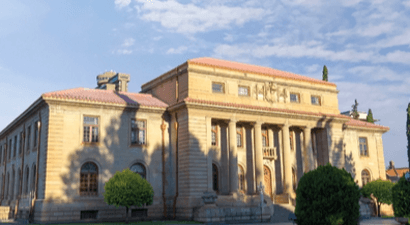BUDGET SPEECH 2024 – A SHORT STORY TAX SYNOPSIS
The Budget Speech of 2024, in as far as tax is concerned, proved to be without soaring surprises or shocking, sweeping statements. It was simply a short story of a stable and resilient tax system, seeking sustainable increases in tax revenue as economic growth is anticipated to improve.
We set out a brief synopsis of the Tax aspects relating to the Budget Speech of 2024.
The fiscus plans on raising R15 billion in 2024/2025. The main tax proposal to do so is by targeting personal income tax. There will be no rate increase, but no inflation adjustments for personal income tax brackets, rebates and medical tax credits will be made, this arguably being the biggest Budget Speech challenge to be faced by all taxpayers. It was acknowledged that rate increases could prompt negative taxpayer behaviour.
The sin taxes are increased, with government proposing to increase excise duties on alcoholic beverages by between 6.7 and 7.2%. Excise duties for cigarettes is proposed to increase by 4.7%.
Fuel levy will not be increased for a third year in a row, taking into account the high fuel prices. The RAF levy and customs and excise levy also remain unchanged.
To encourage infrastructure investments, government will investigate the feasibility of flow-through tax treatment similar to what is afforded to trusts and other investment vehicles, for certain clearly defined infrastructure projects under specified circumstances. We look forward to seeing what these initiatives will look like.
To encourage the production of electric vehicles in South Africa, and it is proposed that an investment allowance be made available for new investments from 01 March 2026, whereby producers will be able to claim 150% of the qualifying investment spending on production capacity for electric and hydrogen-powered vehicles.
The section 12H learnership tax incentive is extended by three years to 31 March 2027.
The Explanatory Memorandum and Draft Global Minimum Tax Bill, as published on 21 February 2024, contains more details regarding the global minimum corporate tax. The crux hereof being that any multinational with annual revenue exceeding €750 million will be subject to an effective tax rate of at least 15%, regardless of where its profits are located. These documents are now open for public comments.
It is proposed that amendments be made to clarify the interaction between section 7C and section 31 of the Income Tax Act, regarding interest-free or low-interest loans to foreign trusts. Legislation as it reads now does not effectively address the scenario whereby the “arm’s length interest rate” is less than the “official rate”.
Government included the assessed loss restriction rule effective from 31 March 2023. It has now been clarified that companies in the process of liquidation, deregistration or being wound up will be exempt from this rule.
The two-pot retirement reform will be implemented from 01 September 2024. Contributions to retirement funds will be split, with one-third going into a “savings pot” (from where an annual withdrawal may be made) and two-thirds going into the “retirement component” (this pot remains protected and only accessible once retired).
Proposed changes were also put forth in relation to third-party backed shares. Amongst other proposals, it is proposed that the definition of “third-party backed share” be clarified to include that either the holder or a connected person to that holder can hold the enforcement right.
South African tax residents get a tax credit for certain taxes paid in foreign jurisdictions. It is proposed that the relevant section (s6quat) be amended to explicitly allow a full foreign tax credit against tax payable in South Africa on a capital gain for tax payable in foreign jurisdictions on the disposal of an asset.
Government proposes to clarify that pre-cut or prepared fruit or vegetables does not qualify for the zero-rating of VAT.
Due to additions to the definition of “enterprise” in the VAT Act in 2023, certain foreign lessors of ships, aircrafts or rolling stock were not required to be registered for VAT in South Africa. The unintended consequences of their VAT deregistration will be addressed to provide relief.
It is proposed that the VAT Act, governing Sharia compliant financing arrangements be amended to clarify the VAT treatment of “Mudaraba” Islamic financing arrangements. At the moment the VAT Act does not address it, whereas the Income Tax Act does, creating a discrepancy.
As a difficulty arising in numerous disputes with SARS, it is encouraging to see that it is proposed that the VAT Act be amended in relation to the tax period in which past unclaimed input tax credits may be claimed. This is to clarify that such deductions are to be made in the original period in which the entitlement to the deduction arose, which from our experience goes against SARS current internal policy and practice.
Should a non-resident vendor have no or limited physical presence in South Africa, it is proposed that the requirements that its representative (normally the public officer) must reside in South Africa and that it must open a South Africa bank account be waived, in specified circumstances. We welcome this proposal.
In order to expediate the process of debt collection, it is proposed that taxpayers be interviewed by SARS in person in instances where the taxpayer is subject to recovery proceedings or has applied for debt relief (compromise and/or deferral applications). This provision already applies to audit cases but will be extended.
When in a dispute with SARS, the alternative dispute resolution proceedings can only be accessed once an appeal is submitted. Most of the appeals are resolved at these proceedings. It is proposed that the ADR proceedings are to be allowed at the objection phase of the tax dispute.
When a company is incorporated and registered with CIPC, it is automatically provided with an income tax number. It is proposed that a newly formed company will have its directors and public officer in place on formation. Therefore, the one-month period within which the representative must be appointed is removed. The implementation hereof will be interesting to note, specifically the interplay between SARS and CIPC when the public officer needs to be verified.
The Budget Speech short story is one of holding the fort, for now, with a meaningful tax incidence on individuals. It would be a good follow up to this story if next year, this time, the budget talks about an increased tax capacity as a result of economic growth.






